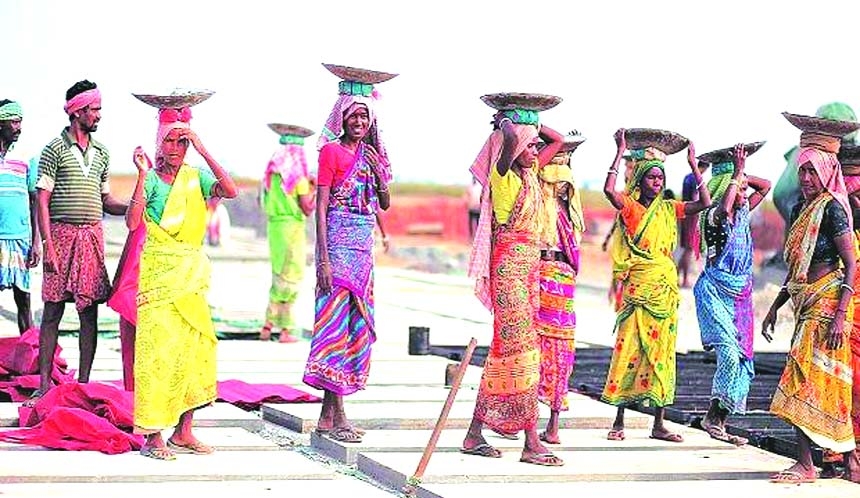
Staff Reporter :
The prices of rice, cooking oil, meat and other kitchen staples are increasingly out of reach of many rural people and it enforced the rural people to cut medicine cost.
With the world economy already devastated by Covid-19 pandemic and now reeling from impacts of the Russia-Ukraine war, basic items such as bread, meat, and cooking oils have skyrocketed around the world, sending shockwaves through the domestic market.
The spiraling prices pose a genuine risk of hunger for the most vulnerable people in rural areas of the country as they are obliged to spend the lion share of their income on food. “For me and my helper, the breakfast – four paratha and two plates of vegetables – used to cost Tk50. The same meal currently costs Tk90,” said truck driver Salam. He now carries panta for breakfast when he leaves home at dawn.
The transport worker said he also has had to reduce tea consumption to 1-2 cups from the previous 5-6 cups a day.
Meherpur shopkeeper Ripon Ali too left roti and bread, and said he now eats rice for breakfast. “I’m buying the daily essentials in smaller quantities. But it would not be an option if the prices keep surging,” he said. Meherpur bakery shops are at present charging at least 30 per cent more for bread, biscuits, cake and chanachur, while other snacks and sweetmeats cost Tk2-Tk5 more per piece. Entajul Islam, an auto-rickshaw driver in Dinajpur, said he now can buy meat only once in three months. “Even eggs are not an alternative anymore as prices have doubled,” he added. Sabbir Hossain, a salesperson in Barishal, said he has cut off fish and meat from the menu to manage the price hike. “I used to go to the bazaar everyday but nowadays I go once a week to reduce spending.” But there are rural people for whom trimming the menu is not enough, as they have to adopt serious steps like stopping medication to tackle the situation. Cumilla’s house help Shahin Akter is one of the unfortunate individuals who had to take such steps that threaten physical well-being.
Shahin Akter said she recently borrowed Tk32,000 and bought her husband an auto-rickshaw. Though the husband cannot carry passengers for too many hours as he is ill, the rickshaw-earned money had been enough to repay loans and buy medicines. But Shahin got hurt in her legs two months ago and had to visit a doctor. Now, the price shock, loan repayment, schooling cost for the kid and medical expenses for the husband compel the woman to skip the drugs to tackle the pressure. Alongside the commodities, transports and other services currently cost people more in rural areas. Rajshahi people said rickshaw fares have increased by Tk5-Tk10 in different places of the city. Towhida Ara, a private clinic nurse in Rajshahi, said she has to spend Tk100 daily now only for picking and dropping her daughter to school and tuition. “From transport spending to daily food costs, everything goes under trimming. I have to manage the increased rickshaw fares by cutting other costs,” said Towhida Ara.
Zahurul Islam, a transport worker in Meherpur district, said he used to have some savings even two months ago while the monthly spending has gone beyond income in recent times. He said bank borrowing would be his last option for survival. Lakshmipur banker Mohammad Ala Uddin said many of his customers are eating away their savings, while new deposits have been on a gradual decline.

